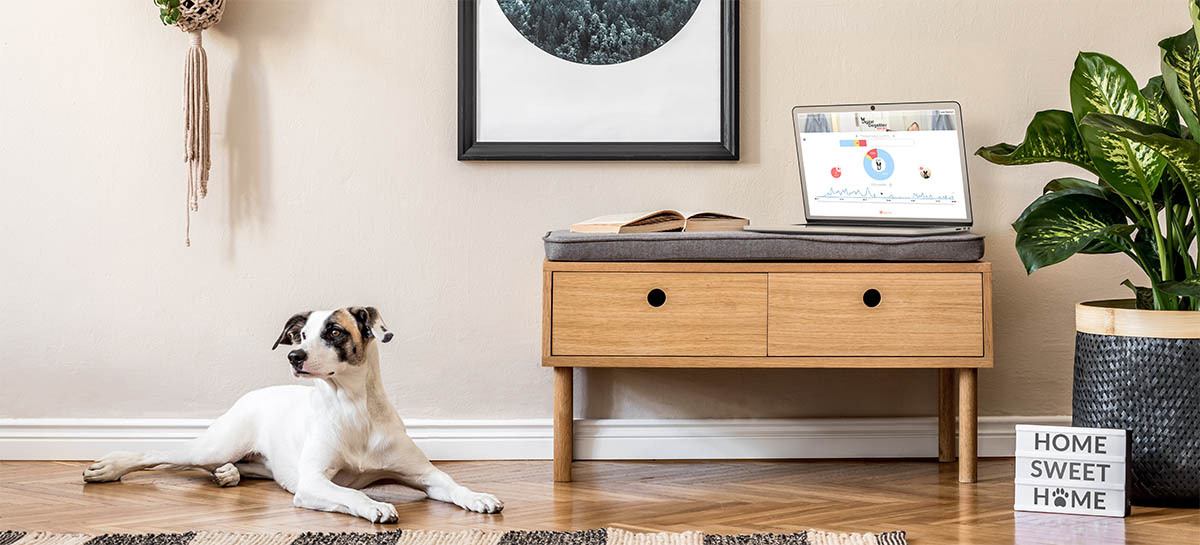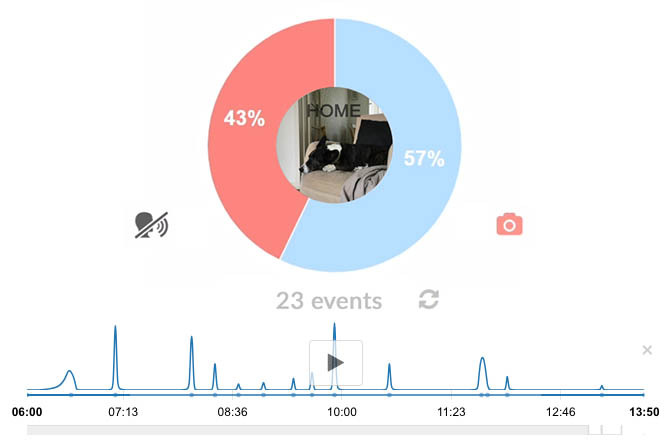Digital Dogsitter® is an application for monitoring and calming a dog who is home alone. The program works by monitoring a dog visually and auditorily, then automatically playing pre-recorded audio clips of the owner's voice that will help soothe an upset pet. Despite its effectiveness, the simplicity of the voice feedback method has raised doubts about whether it can affect a dog in the desired way.
The performance of voice feedback has now been studied in a peer-reviewed research article published in Applied Animal Behavior Science. The article, Digital Dogsitter® reduces vocalization in dogs suffering from separation-related problems, explores the efficacy of the voice feedback method utilized by Digital Dogsitter. Research for the article was conducted by Katriina Tiira FT (katriina.tiira@helsinki.fi). The article is free to download at https://www.sciencedirect.com/science/article/pii/S0168159121002471.
Research shows Digital Dogsitter to reduce the amount of dog vocalization
We already knew that our program worked well and helped dogs with separation-related problems. Thanks to your feedback, we also knew that voice feedback has improved the lives of thousands of dogs and their owners. Still, even we were surprised at how effective the voice feedback proved in this scientific study.
A sample of 40 dogs and their owners participated in this study. By the end of the study, the reduction in vocalization after using Digital Dogsitter® was 95.7%, and the reduction in the number of loud events was 58.2%. These amazing results are better than what has been observed with other methods in previous studies.
The dog owners who participated in the study indicated that the program was effective. In a follow-up questionnaire, a majority of participants stated that their dog still exhibited the positive effects of the program eight months after the study. Many participants also reported a noticeable reduction in their dogs’ destructive behavior.
It was not possible to assess dogs’ emotional state and stress levels in the study. However, after the study period, participants were asked for their opinion on whether Digital Dogsitter® helped to reduce their dogs’ separation-related symptoms. Of the respondents, 53.5% felt that the application was extremely helpful/rather helpful, and 34.9% felt that it was somewhat/moderately helpful. In any case, research shows a significant reduction in barking and other vocalizations in dogs, which may also indicate a reduction in other separation-related symptoms and may play a role in improving the life situation of some households.
A clinical diagnosis of the causes and background of separation-related problems is still recommended before treating the symptoms. However, the study suggests that even without any clinical diagnosis, timely voice feedback can lead to a marked reduction of separation-related symptoms for many dogs.
Voice feedback is not a substitute for proper separation training. However, it may be a useful tool in training. Before using voice feedback, we recommend that you read the instructions for using voice feedback in training and take the symptom survey for voice feedback to assess whether voice feedback is appropriate for your dog.
We thank everyone who participated in the study!





